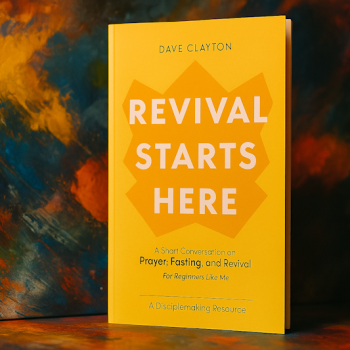By Bruce G. Epperly
 Eighth Sunday after Pentecost
Eighth Sunday after Pentecost
July 18, 2010
Amos 8:1-12; Psalm 82; Colossians 1:15-28; Luke 10:38-42
Today's scriptures speak to the spiritual lives of North Americans today. They diagnose our condition and provide a pathway forward. With the "perfect storm" of a massive oil spill, economic uncertainty, continuing foreclosures, the ongoing two-theatre war, the threat of global climate change, terrorism, culture wars, growing racism, and shifts in geopolitical power, many people wonder if government or business can fix anything. Fear, uncertainty, and anxiety are in the air for baby boomers whose visions of globe-trotting retirements have faded into simply hoping to hold onto a job until 67 or 70.
Perhaps Amos' listeners felt the same way. They believed that the old religious and political ways would save them, and were shocked to discover that they and their leaders were at the mercy of forces beyond their control. They turned to God but that didn't even do any good. God appeared to have withdrawn and may even have been punishing them for their injustice and apathy. There was still food in the pantry, but a famine on hearing the world of God.
The prophet connects injustice with the ability to encounter God in meaningful ways. If we close our hearts, minds, and ears to the cries of the poor -- and worse yet, directly or indirectly, participate in unjust actions, foreclosures, and profit-seeking at the expense of justice -- we will also close ourselves to God's inspiration and comfort.
Now, it is important that we avoid saying certain things such as 1) economic collapse is divine punishment for our injustice, and 2) God is working through natural catastrophes to get our attention and challenge us to mend our ways. In contrast to the threatening language of Pat Robertson and others who connect divine punishment through national and natural catastrophes with America's acceptance of moral evil (ironically, not corporate behaviors), I would suggest the very real connection between behaviors and outcomes. This is not linear or deterministic but causal insofar as irresponsible economic activities, shoddy products, cost-cutting at the expense of safety, and concern about profits over people, have serious and long-term consequences.
The gulf coast cries out against injustice; unemployed people witness to corporate greed and mismanagement; and the homeless and evicted unmask irresponsible lending practices. These behaviors have spiritual consequences: when we are out of alignment with God's vision of the world, we lose touch with God's vision for our lives. We can no longer -- or barely -- hear the "still, small voice" beneath our shouts of greed, individualism, and empire.
Though they deem themselves spiritual people, adherents of the new age text The Secret and the conservative Christian prosperity gospel alike focus on individual success, rather than corporate responsibility and social justice. Proving God's existence because you've found the closest parking place pales in comparison with real spiritual issues such as poverty, racism, and ecological disaster. Truly holistic spirituality hears the groans of creation and the cries of the poor as well as our own spiritual yearnings.
Colossians joins Christology with ethics. The energy and spiritual vision present in Jesus Christ gives life to the universe. We live in a universe in which human actions exist in a wider cosmic environment aiming at healing and wholeness. Reconciliation is at the heart of the creative process and calls us beyond self-interest to world loyalty. Knowing that God is moving toward healing and wholeness in all things, our calling is to live in alignment with God's personal, community, congregational, and planetary visions of wholeness. Our commitment to reconciliation reflects God's own desire for personal, communal, and global reconciliation.
The story of Mary and Martha points to the interplay of spirituality and service and contemplation and action. Martha is rebuked, perhaps unfairly by Jesus, not because of her actions reflecting her desire to be the perfect hostess, but because of her anxiety and lack of spiritual focus. She was so intent on the product -- doing things just right -- that she neglected the process, the need for providing personal as well as culinary hospitality for Jesus. Mary forgot the purpose of her preparations; to welcome and nourish a dear friend and teacher. Mary and Martha need one another; the activism of Martha invites Mary to leave her contemplations and straighten up the house; Mary's intense focus on Jesus' presence reminds Mary to consider what's really important -- is it the right touch on the dinner table or loving attention to their guest? Both are important, but Jesus implies that relationship always trumps propriety and perfectionism.





